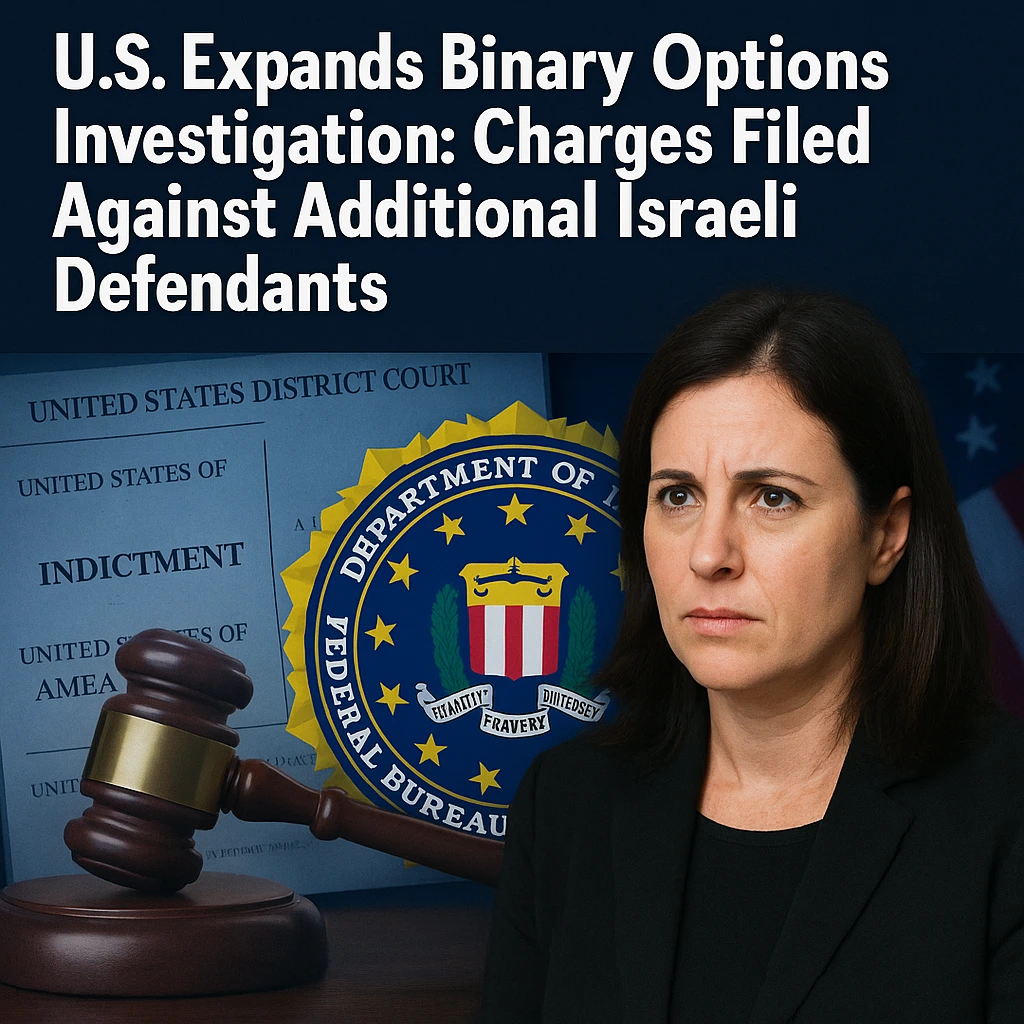Background: Prosecution of Lee Elbaz
In 2017, U.S. federal authorities detained Israeli national Lee Elbaz for her alleged involvement in a binary options fraud scheme. By March 2018, Elbaz had been formally indicted in the District of Maryland on one count of conspiracy to commit wire fraud and three counts of wire fraud. Her case centers on her role as CEO of YUKOM Communications, an Israeli company that operated a series of unauthorized broker platforms, most notably BinaryBook and BigOption.
Fraud Tactics and Operational Structure
According to the indictment, YUKOM was responsible for investor “retention” services for its associated platforms. This role involved encouraging existing clients to reinvest more capital while systematically obstructing withdrawal attempts (source). Clients were enticed with deceptive promises of bonuses and high returns, only to encounter various excuses when requesting withdrawals. In some instances, users were falsely accused of violating terms, resulting in account terminations and forfeiture of funds.
YUKOM allegedly failed to segregate client deposits, instead channeling the funds into operational expenses—including marketing, executive compensation, and commission structures. Retention agents reportedly earned commissions directly from new client deposits, effectively misappropriating funds from the outset.
Court documents also indicate that Elbaz and her associates misrepresented their intentions to investors, presenting themselves as allies while knowingly profiting when clients incurred losses—a common hallmark of fraudulent binary options models.
Vulnerable Victim Targeting
The FBI’s investigation revealed that YUKOM specifically targeted vulnerable demographics, including seniors and military veterans—individuals generally less familiar with high-risk financial instruments such as derivatives and binary options. This deliberate focus heightened the ethical and legal gravity of the scheme.
Financial Scale of the Scheme
U.S. investigators estimate that BinaryBook alone raised approximately $99 million from investors between Q2 2016 and Q4 2017. Of that amount, only around $20 million was reportedly returned to clients. These figures underscore the effectiveness of YUKOM’s retention strategy and raise broader concerns about similar platforms, including Option888 and SafeMarkets, which have drawn comparable complaints.
Ongoing Legal Developments
Elbaz maintains her innocence. Her legal counsel, Jonathan Lopez, asserts she acted within the bounds of lawful business operations. However, recent developments suggest otherwise. Two of her former colleagues at YUKOM—Liora WELLES and Shira UZAN—have both pleaded guilty to binary options fraud. According to The Times of Israel, WELLES admitted to defrauding investors of approximately $2.4 million, while UZAN accepted responsibility for $1.8 million in losses.
Additionally, former Israeli reality television personality Lissa Mel was arrested in Los Angeles in late 2018. Mel reportedly served as a “Senior Broker” and “Retention Manager” for BinaryBook and BigOption, allegedly using aliases like Monica Sanders during interactions with clients. She faces up to 20 years in prison if convicted.


